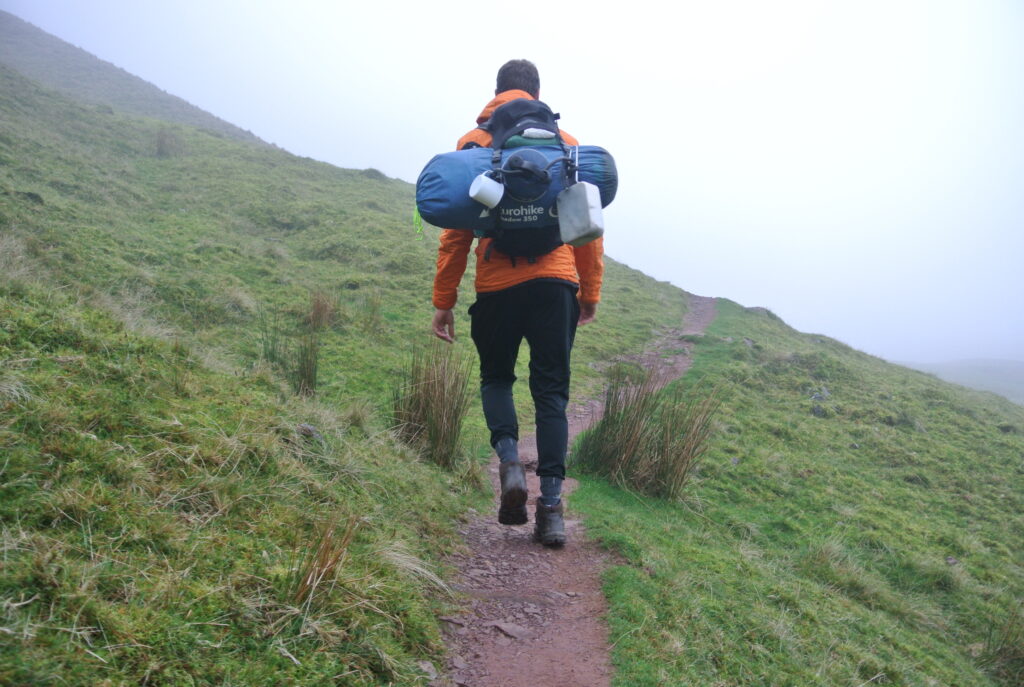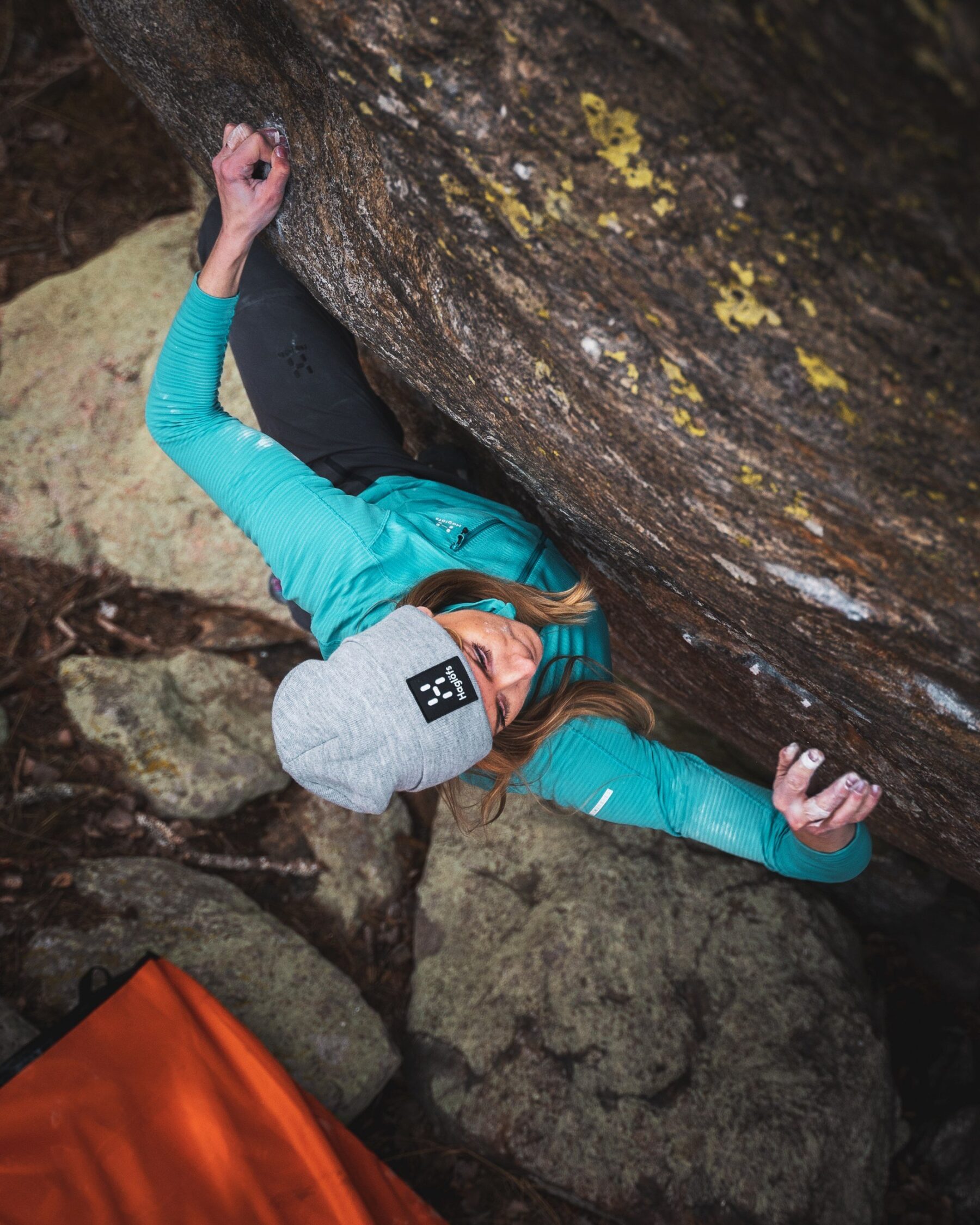Home Story The Evolution Of Nutrition
The Evolution Of Nutrition
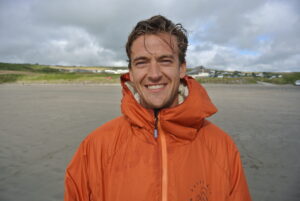
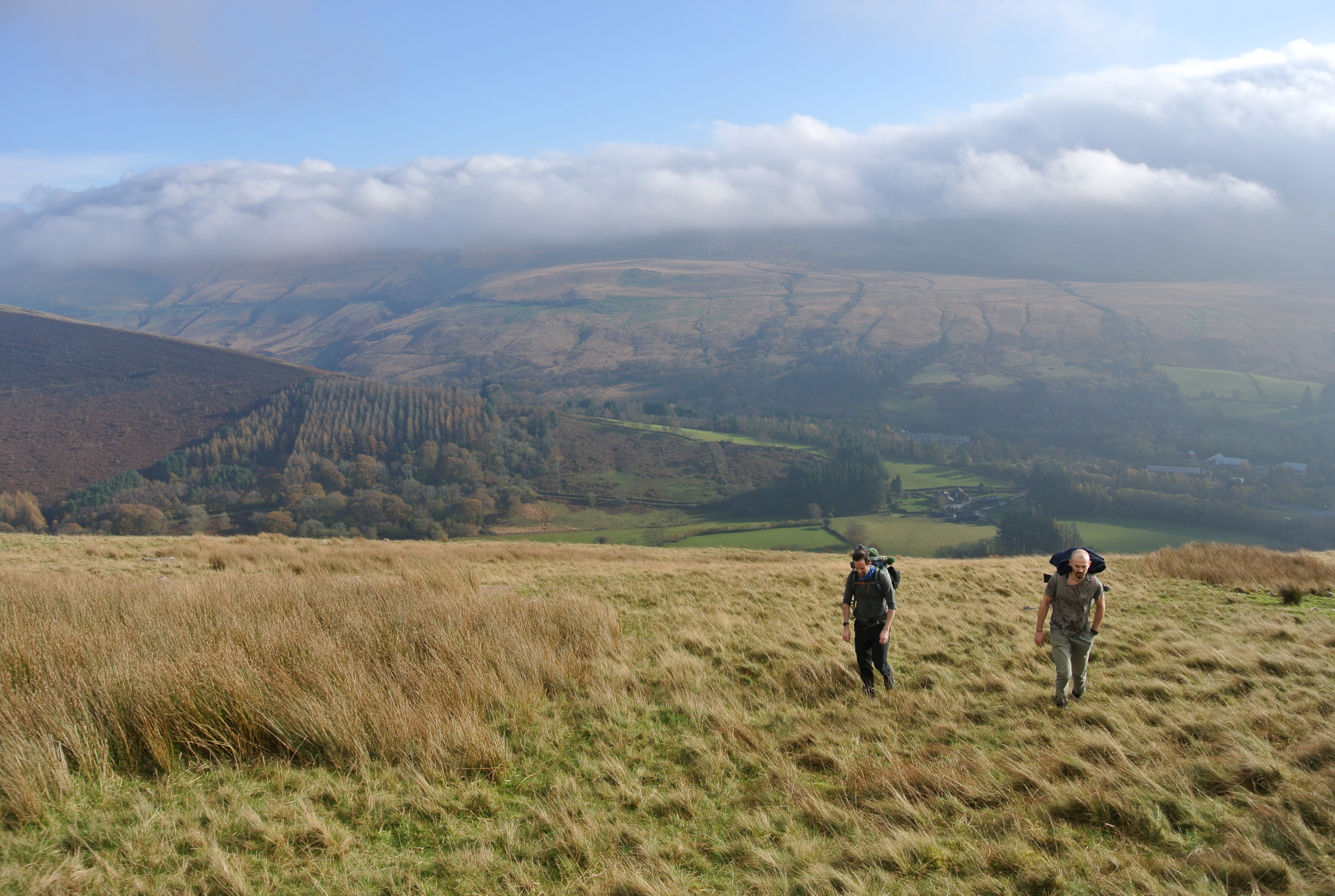
‘One foot in front of the other, make sure your water bottle is full, stay warm, and whatever you do, don’t forget to eat.’ Robbie and friends hiking in the Brecon Beacons. © Robbie Puddick
I was recently on a hike with a few friends in the Brecon Beacons; we completed a 16-mile overnight route through the Black Mountains on the western side of the peaks. It was glorious.
No phone signal, no air pollution, just three blokes enjoying a stroll in the mountains. During times like this, things are so simple. One foot in front of the other; make sure your water bottle is full; stay warm, and whatever you do, don’t forget to eat.
Hiking, running, and outdoor adventure help to strip back so much of what makes our modern lives so complicated. It’s liberating to have most of your decisions laid out for you. You don’t have to think; most of the time, you just need to do. But when we return to our everyday lives, full of extreme comfort and unregulated freedoms, our choices can overwhelm our hunter-gatherer brains. Even the most straightforward question of ‘why do we eat?’ becomes more complex when you step into the world of the modern Western lifestyle.
We evolved in an environment of scarcity and now find ourselves in a world of abundance. This is referred to as the evolutionary mismatch hypothesis, which states that we respond in inherently harmful ways due to our environment changing far quicker than the evolution of our brains can catch up. We go against the number one reason we eat: survival.
In truth, our over-consumption response to this environment is in accordance with our brain’s desire to survive. The more fat you store, the less likely you will succumb to a potential famine. And in our evolutionary past, the brain adapted to be hyper aware of food scarcity. In contrast, food abundance is a very recent phenomenon.
This mismatch almost always gets discussed regarding the impact of overconsumption on our physical health. Obesity, type 2 diabetes, cancer, and heart disease are often attributed to our maladaptive responses to overeating in the current environment.
We evolved in an environment of scarcity and now find ourselves in a world of abundance
Reasons To Eat
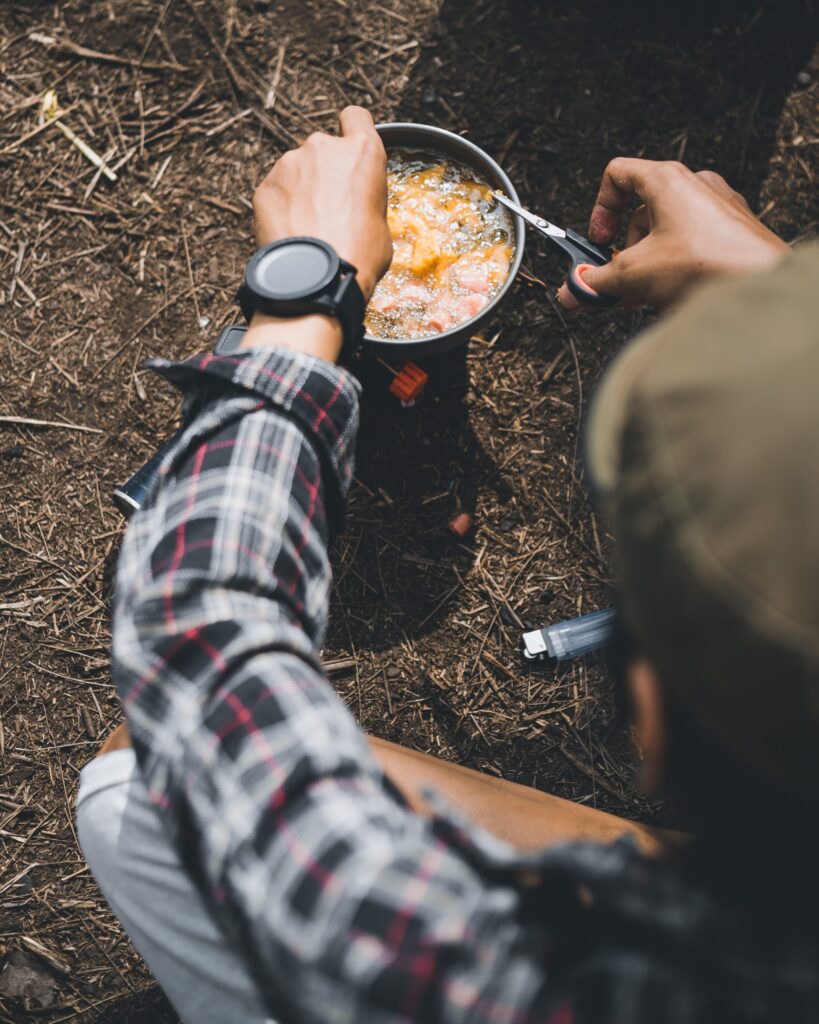
For the hunter-gatherer, we have a straightforward reason why we eat:
> To survive
Energy and protein enhance our ability to gather yet more food and increase our chances of survival, and we survive to reproduce, simple.
In the UK in 2023 however, the list is a bit more comprehensive:
> To survive
> To improve our physical and psychological health
> To celebrate or socialise
> Boredom
> In response to an emotion like stress
> To soothe psychological trauma
> Environmental cues
> Out of habit
> To treat a medical condition eg. Ketogenic diets for epilepsy, low-FODMAPS for IBS
> For pleasure
But What Of The Mind?
We often associate sports and outdoor adventure with health (particularly diet and nutrition), with athletes at the pinnacle. But research suggests that athletes, particularly those in sports that typically encourage a low body fat percentage, like gymnastics, are more at risk of developing eating disorders than the general population. Females in aesthetic sports appear to be most at risk. One study on Norwegian athletes suggested that up to 42% of female gymnasts had an eating disorder, and 90% of all cases occur in people under 25.
In outdoor and adventure sports, a study published last year systematically analysed themes around food, diet, and body image in online rock-climbing communities. This is what we’d call an explorative study designed for hypothesis creation. It seeks to determine whether there’s a possible relationship between several variables, in this case: rock climbing (or adventure sports in general), body image, and attitudes toward food and diet.
We can use a study like this to determine whether more research is needed to conduct a more thorough analysis of individuals in adventure sports like climbing, to determine the prevalence (how common it is) and incidence (how many new cases occur each year). Then, further down the line – we could use this information to provide support for individuals within these communities. Awareness is key.
So, what did the analysis show? Within the climbing community, there was a broad acceptance that disordered eating was an issue. A cultural focus on weight and thinness to aid performance may lead to some individuals developing disordered eating patterns that are inherently harmful to their health and, ironically, the same performance metrics they’re trying to improve.
Tim Tollefson, one of the world’s best ultra-runners with a top-three finish at the UTMB to his name, recently released a documentary on YouTube where he candidly discussed his experience with eating disorders and body dysmorphia. We often view these individuals as superhuman, immune to the pitfalls of common mental health conditions of us regular folk. But the personality traits that support them in reaching the pinnacle of physical performance can be the same ones that lead to their psychological downfall.
The desire for perfectionism, performance, and aesthetics can drive a relationship with food that counters our evolutionary eating requirements. Unhealthy eating is typically associated with overconsumption, but in sports and exercise, underconsumption is much more prevalent and potentially just as harmful.
The desire for perfectionism, performance, and aesthetics can drive a relationship with food that counters our evolutionary eating requirements
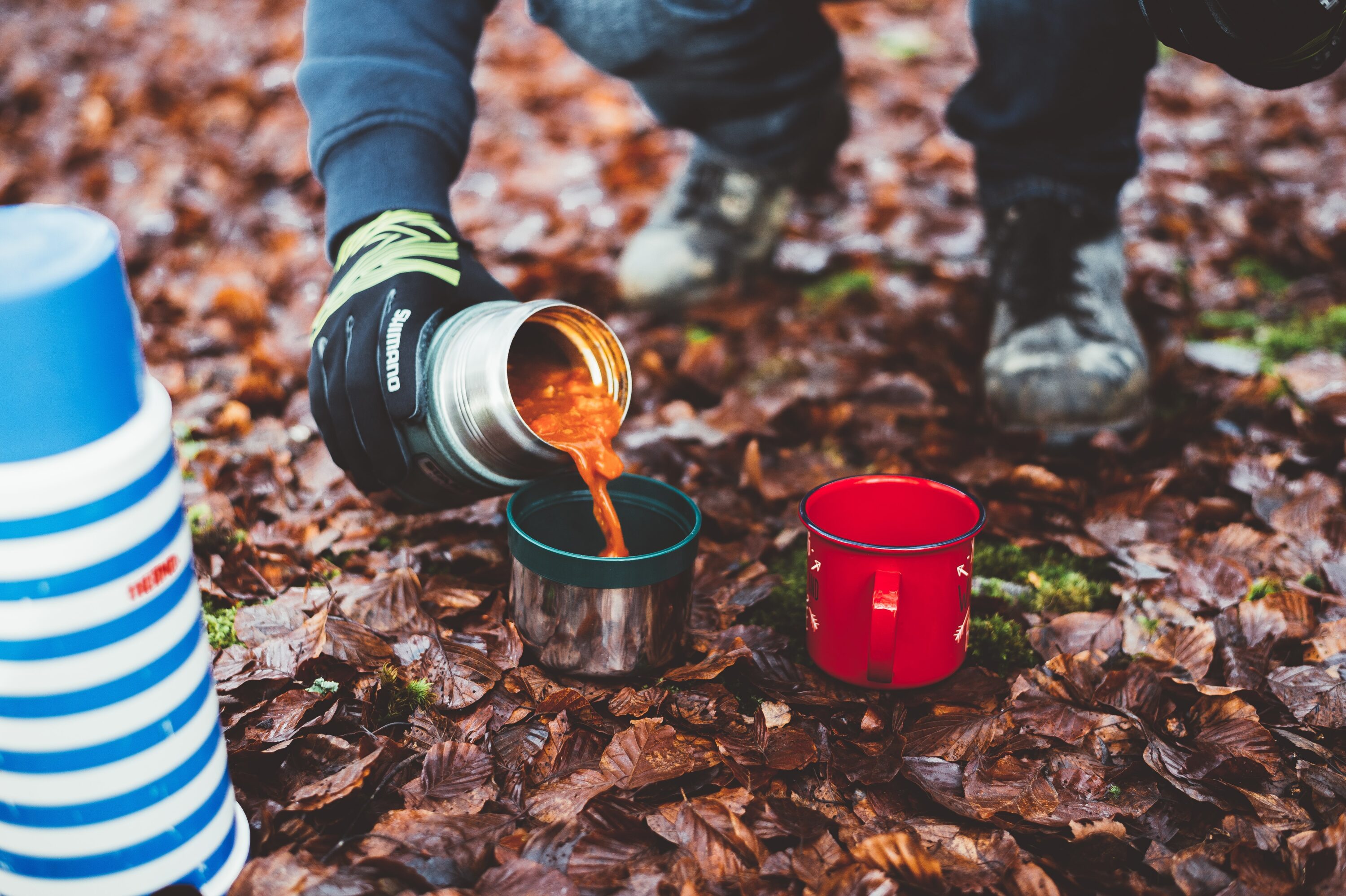
Fuelling your runs, walks, and climbs appropriately is integral to your health and performance. © Annie Spratt/Unsplash
What Can Be Done About It?
Firstly, if you think you might be living with an eating disorder, the first thing to do is speak with your doctor to determine the best course of treatment. You can also reach out to the charity BEAT, which supports individuals living with eating disorders.
If you’re unsure as to whether you’re living with an eating disorder – or are concerned about someone close to you – here are some potential warning signs to be mindful of:
> You spend a lot of time concerned about your body shape and weight.
> You avoid socialising if food might be involved.
> You’re constantly preoccupied with food.
> You avoid certain foods or entire food groups.
> You’re consistently restricting your portion sizes, despite high levels of training.
> You notice changes and fluctuations in your mood. You feel more anxious, low, or irritable than usual.
Now, not everyone with disordered patterns of eating will be clinically diagnosed as having an eating disorder. There’s a spectrum upon which we all sit. It might be that you’ve been given misinformed advice or have inadvertently developed habits that aren’t conducive to a positive relationship with food over time.
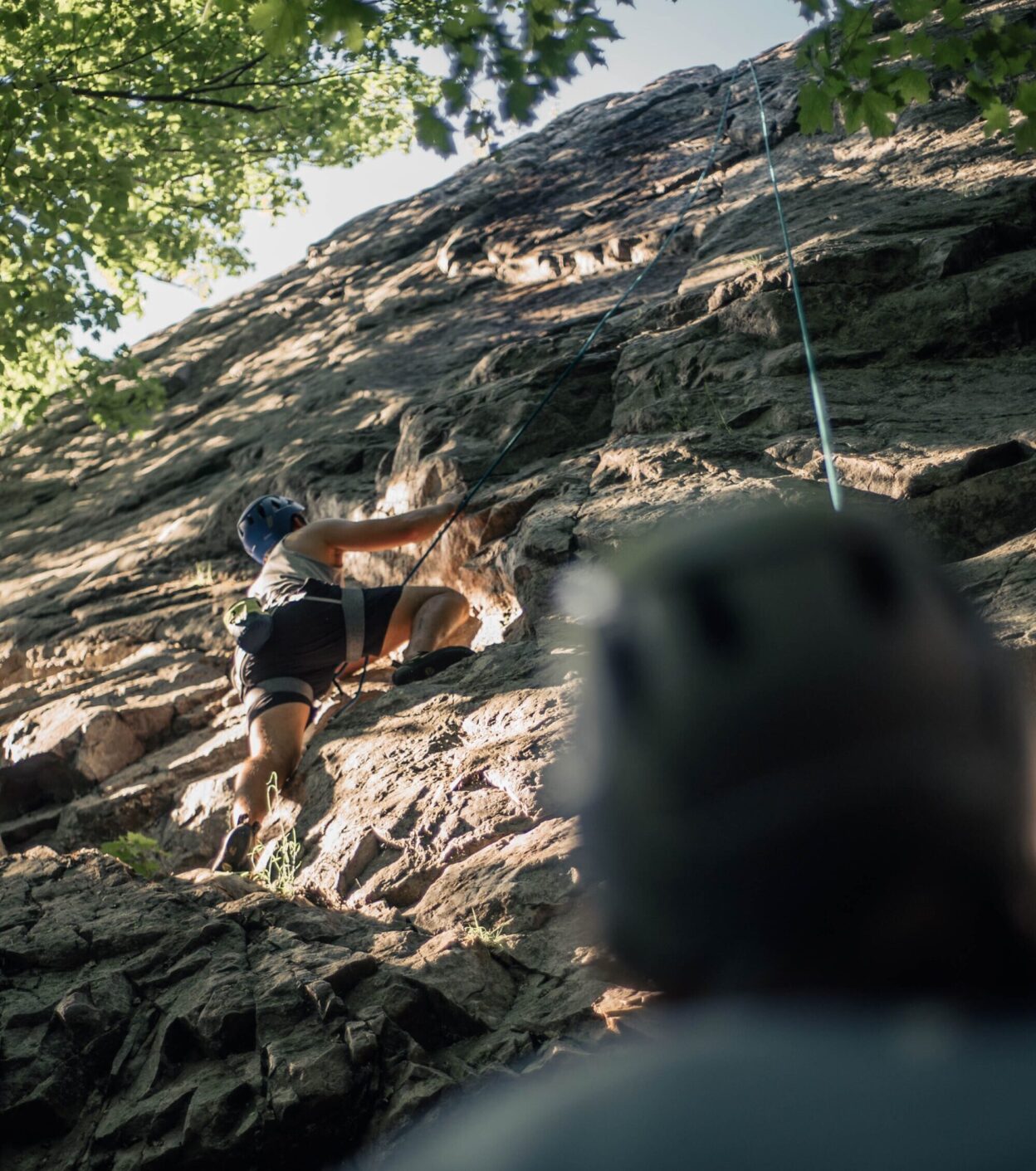
Disordered eating is prevalent in rock climbing, as well as aesthetic sports like gymnastics. © Troy Spoelma/Unsplash
Why Should We Eat?
So, how do we go about reconnecting with a more intrinsic motivation to eat, and improve our relationship with food? Here are three tips:
> Eat to survive and thrive
Your body needs a certain amount of energy, protein, and micronutrients to help you reach optimum health and performance – give it what it needs. This means ditching any notion of restriction or banned foods. Listen to your body; if you’re hungry, eat. That means fuelling your runs, walks, and climbs appropriately and eating three main meals a day until you’re comfortably full.
> Eat Mindfully
Food is a fundamental part of our modern lives and experiences. Learn to appreciate this by eating mindfully. Eat without the distraction of technology and try the 20-20 technique the next time you sit down for your meal: 20 seconds for each mouthful; 20 minutes for your whole meal.
> Learn to soothe emotions in other ways
From a young age, we’re often conditioned to look to food as the primary way we soothe our emotions. But as we age, the pressures of work, relationships and everyday life pile up, and this method of self-soothing can become detrimental. Reflect on other ways to de-stress and deal with emotions such as loneliness, anxiety or frustration. You could try meditation, deep breathing, a short walk in the park, or a short call with a friend. There are multiple ways to soothe our emotions; take a scan through the menu the next time you feel the urge to snack or eat for a method that’s more psychologically driven than physical.
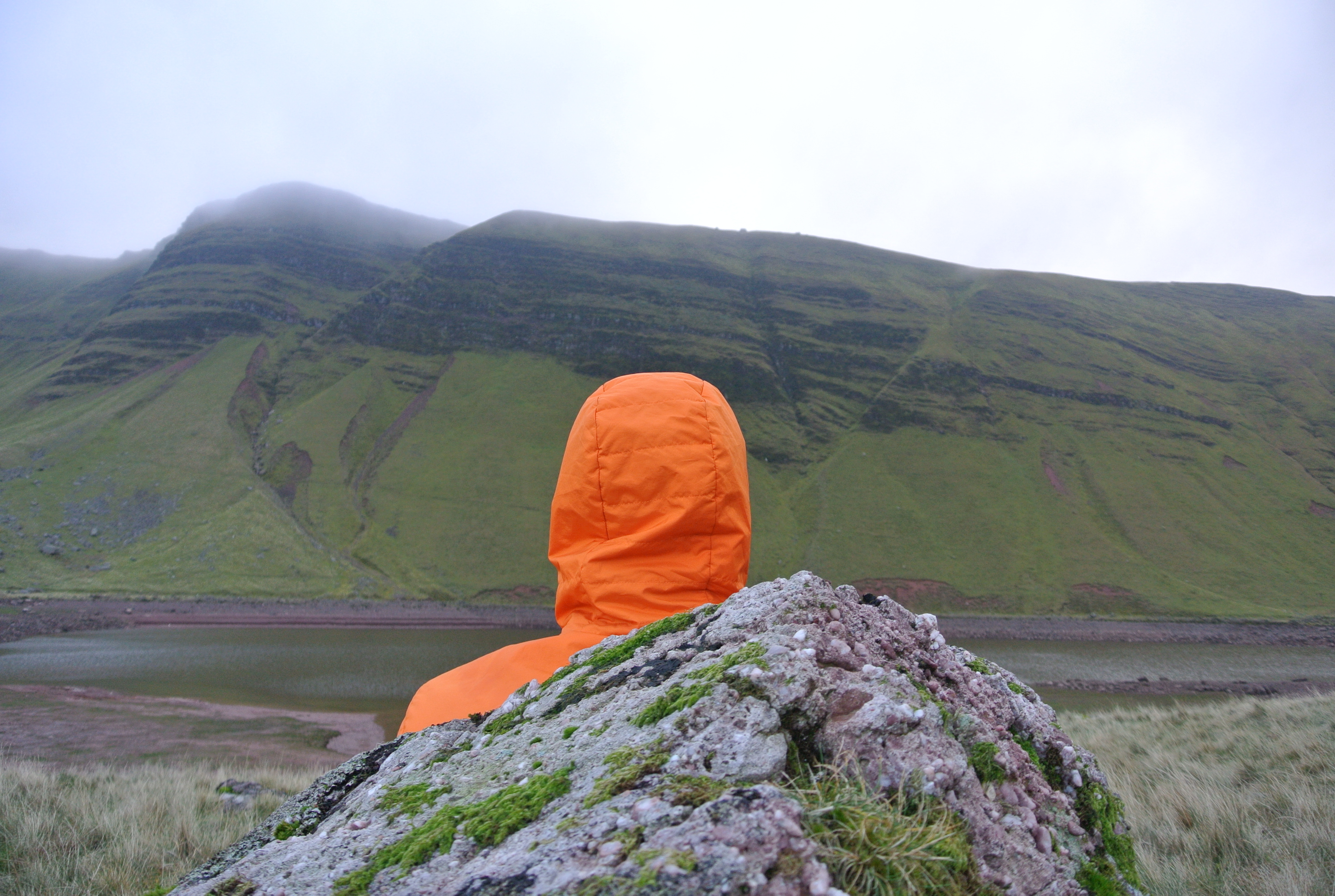
‘What meal do you dream of at the finish? Eat it.’ © Robbie Puddick
And Finally: Don’t Stop Doing What You Love
Accessing nature and being in the outdoors isn’t a cure-all for your problems, and it might be that focussing on performance in the outdoors has led you to have issues around food now. But this doesn’t mean it shouldn’t be a part of your recovery.
Research has consistently shown that access to the great outdoors improves our mental and physical health; you’re more likely to live longer if you access nature regularly. The issue comes when we become disconnected from why we’re accessing nature in the first place and how food can play a complementary role in that experience.
So, when planning your next adventure, climbing trip, hike, run, or whatever you do to get your nature kick, factor in your food too. What food do you need? Pack it. What food do you love? Take it. What meal do you dream of at the finish? Eat it.
Your body, and equally importantly, your mind, will thank you later.
You can read more nutrition tips and tricks from Robbie in his last feature, Adventures In Nourishment.
To keep up to date with more articles in this series, as well as other inspiring and informative features, news and reviews, subscribe to BASE for free.
Don’t miss a single adventure
Sign up to our free newsletter and get a weekly BASE hit to your inbox
Other posts by this author
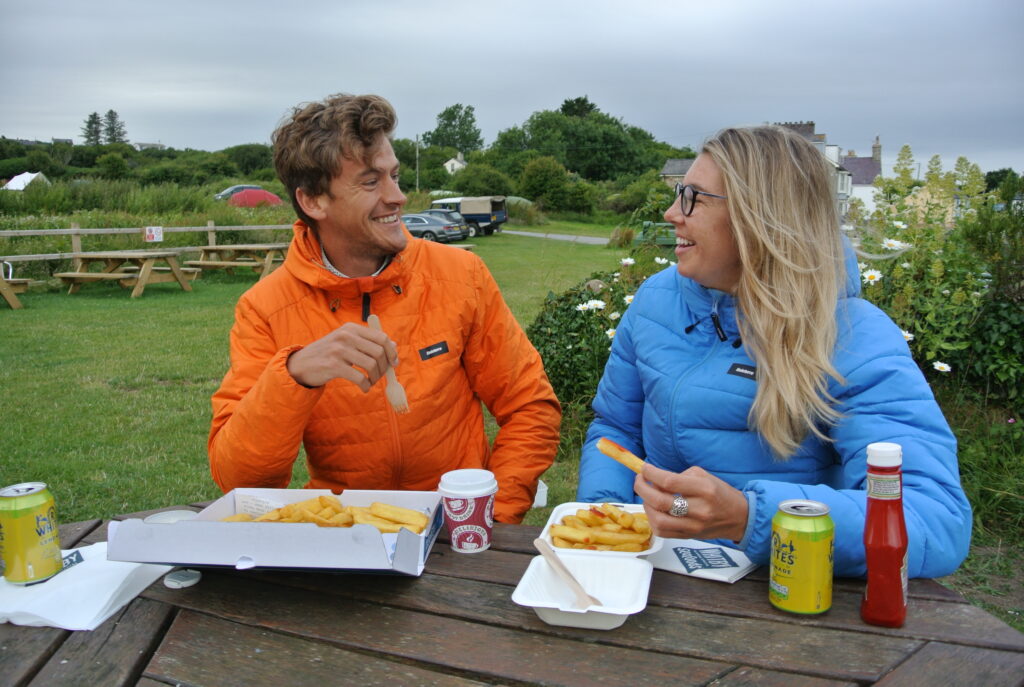
Story • Robbie Puddick • Aug 05, 2022
Adventures in Nourishment
Approaching food with an open, curious, and explorative mind

